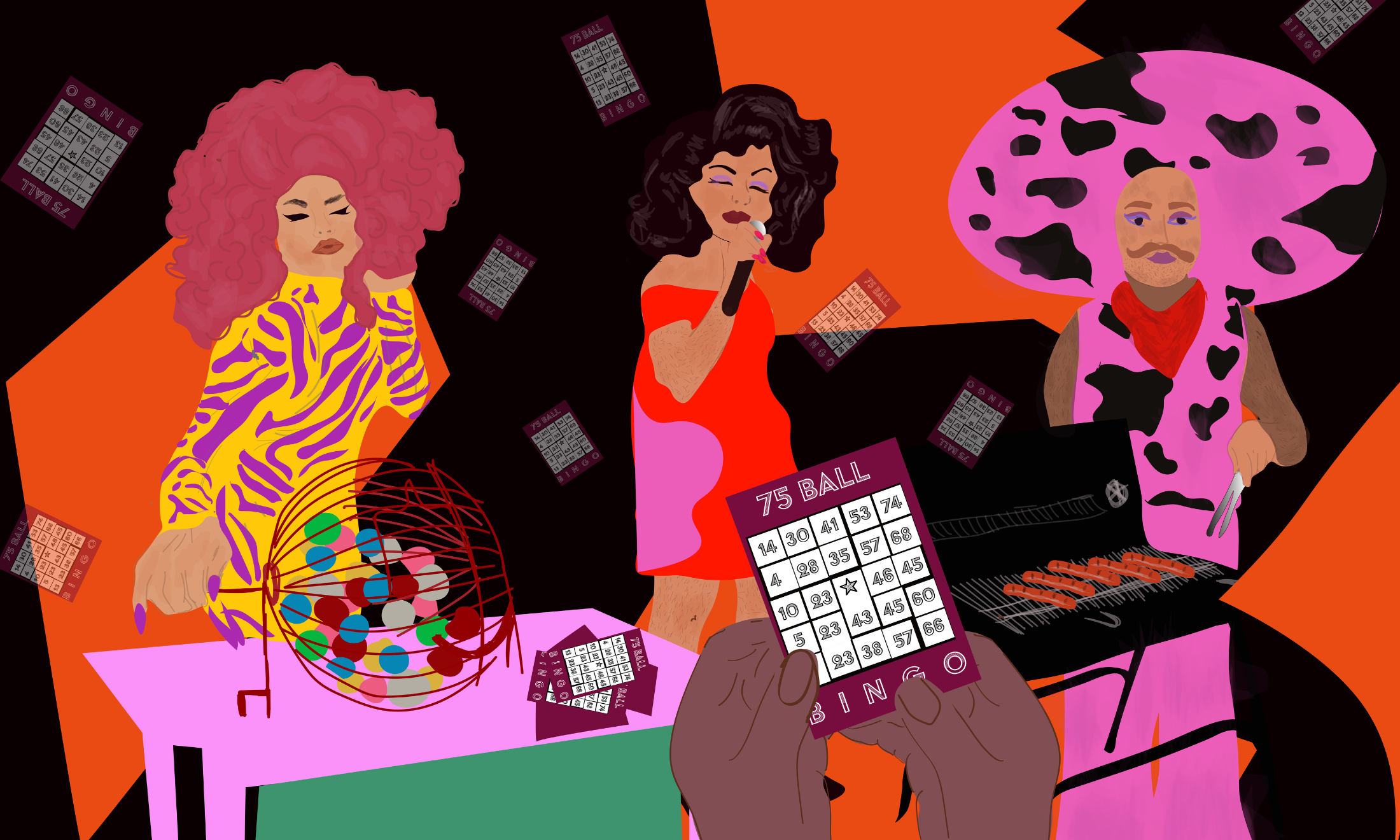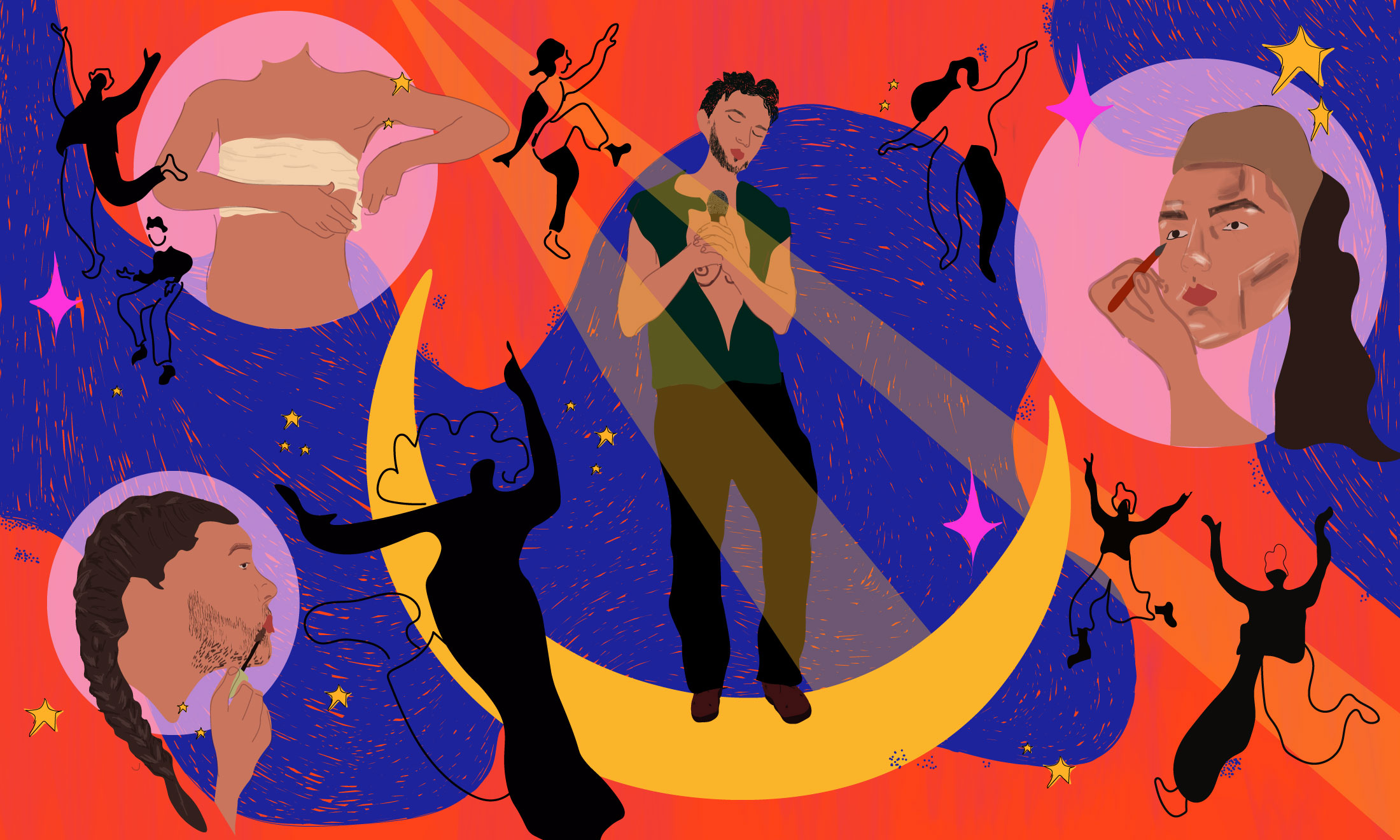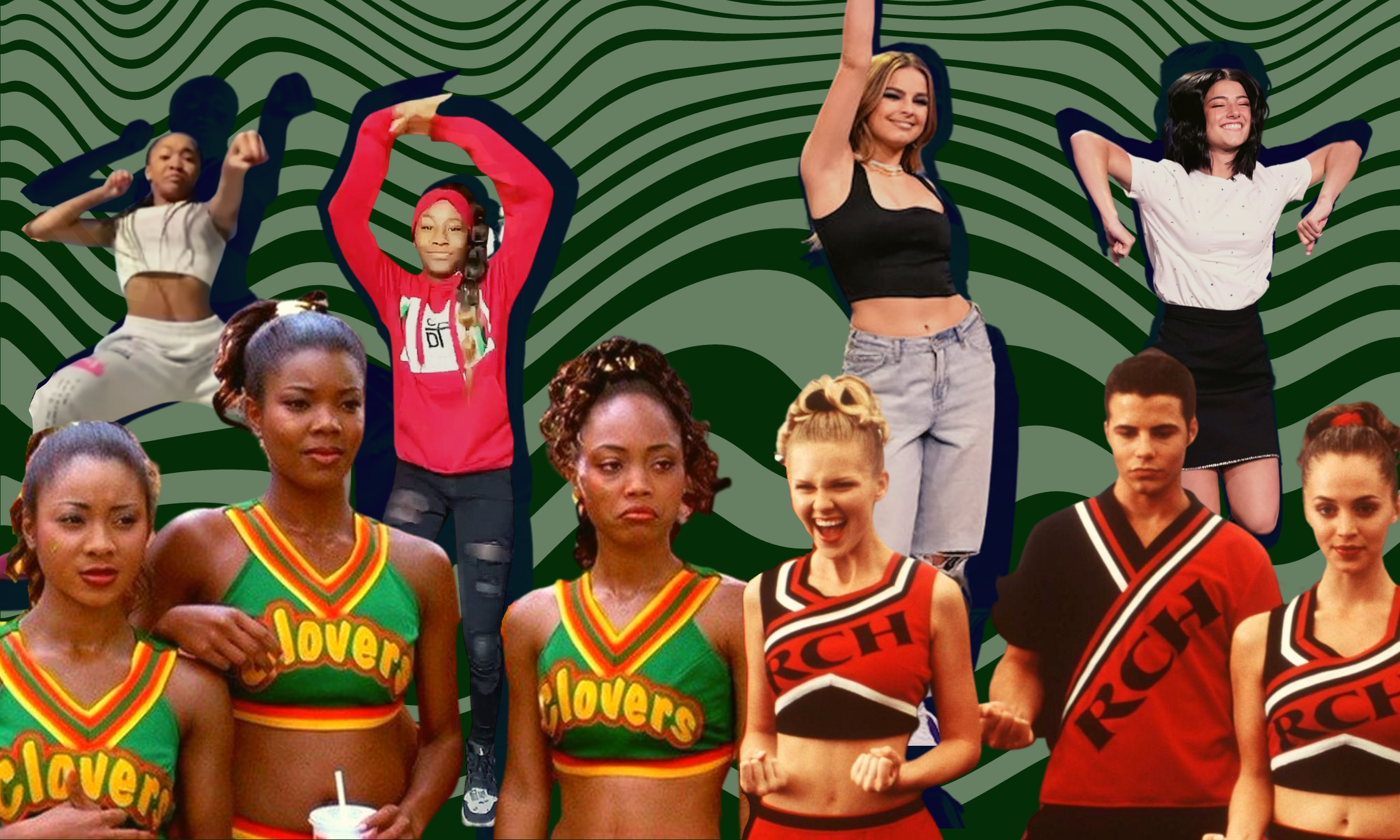
Ru Paul’s Drag Race has become an international success. So it’s no surprise that the Ru Paul’s Drag Convention has followed in its footsteps. Every year, thousands of people make their way to Downtown Los Angeles or New York to experience all things drag for three full days, through a mix of shopping, Q&A panels and the opportunity to meet your favourite drag personalities. Having attended this year, I can say that the attendees were arguably as diverse as a crowd could get. Every race, gender and age was well represented. People had travelled in from Texas, Paraguay and even Australia to experience it all first hand.
Walking through the convention, you could buy anything from makeup, wigs to custom fit bodysuits. Merchandise was riddled with phrases such as “shade”, “yaaaas queen” and “okurrrr” plastered onto t-shirts, fans, sandals and everything in between. Whether specific to a popular drag queen, or official merchandise of the convention, they all had one thing in common: they were rife with phrases that predominantly (if not exclusively) derived from the African-American community.
The art of drag is rooted in exaggeration and poking fun at societal norms. Despite this, appropriation, racism and double standards pinned against black performers create an uneven playing field in the drag community. In 2015, Amandla Stenberg’s high school project: Don’t Cash Crop on My Cornrows quickly garnered worldwide attention. In the following years, countless statements have been made about the abundance of cultural appropriation. Whether touching on braids, controversial adverts or the infamous Rachel Dolezal, most of the buzz has failed to draw attention to the issues of appropriation and race relations in queer communities.
“Like most subcultures, the drag world is also dominated by cisgender white men…who choose parts of black culture for personal and monetary gain”
That recently changed, with the elimination of The Vixen and subsequent interviews surfacing the same weekend as the convention. As a blunt and outspoken individual, fellow contestants had dubbed her as the angry black woman. Arguments were heavy, tears were shed, and she soon left the show in seventh place.
“There’s a huge expectation of likability and I think the consensus is that in order to be accepted by the white audience, we have to be docile, be the sassy black friend, but not ruffle feathers — not push things anywhere,” she told Vulture. “I am none of those things, and I don’t care to be, so I think that’s why I got such a strong reaction from the fandom. I am fully aware of the game that needs to be played to be marketable for a white audience, and I do not care to play it at all.”
This situation should come at no surprise. Like most subcultures, the drag world is also dominated by cisgender white men. Men who often pick and choose parts of black culture for personal and monetary gain. In additional to selling merchandise, many white drag queens often mimic black women. As frequently seen in the show, the Drag Convention was nothing short of neck rolls, finger wagging and lip smacking coming from white queens who’ve made this behaviour part of their image. Fans lined up for hours to witness this in person, as well as do their own take on the same problematic mannerisms.
“…you can’t simply use someone’s demographic as a novelty. Using someone’s essence to tick the box of diversity is not sufficient”
It’s important to remember that Ru Paul, the person behind this booming franchise, is black. But why is she the exception? How can more black people make as much fortune off of the phrases and mannerisms they’ve created? What does dismantling problematic behaviour look like? Are streams of videos and articles enough? When should someone follow in the footsteps of The Vixen and tackle the conversation head on, regardless of how ugly it could get? “As a male entertainer who is portraying a black female character, I do have an ounce of privilege in my agency,” Vixen continued in her interview with Vulture. “I can respectfully pay homage to my mother and all the women who inspired me.”
This approach could be an important part of the solution. Taking on said characters while acknowledging one’s privilege would be a huge step forward. Giving black queens the agency to be who they are, and consistently supporting them during times of conflict is crucial. By continuing to chastise them for being themselves, while celebrating white queens for the exact same thing is regressive behavior.
If you can learn anything from the wave of media representation, it’s that you can’t simply use someone’s demographic as a novelty. Using someone’s essence to tick the box of diversity is not sufficient. Black individuals, both in front and behind the scenes, should receive more well-paying opportunities. They should be allowed to speak on issues that plague the queer community without facing overt manipulation. Furthermore, we as black people must continue to create our own spaces. By the Vixen creating events like Black Girl Magic, an ongoing drag event in Chicago, we can remind each other of our worth and give each other the creative freedom we desperately need.
It’s uncertain how long it’ll take before problematic individuals in the queer community fully hold themselves accountable. Until then, we must continue to speak out, continue to create our own spaces, and continue to thrive, despite how many may see us in a negative light.









